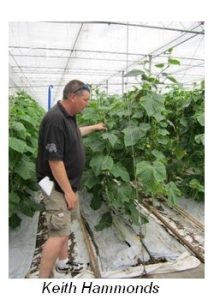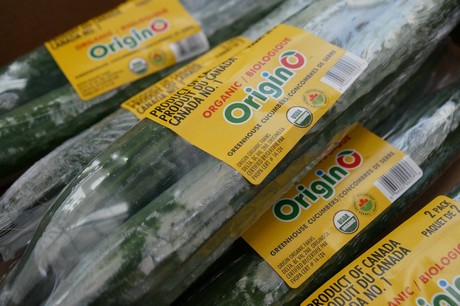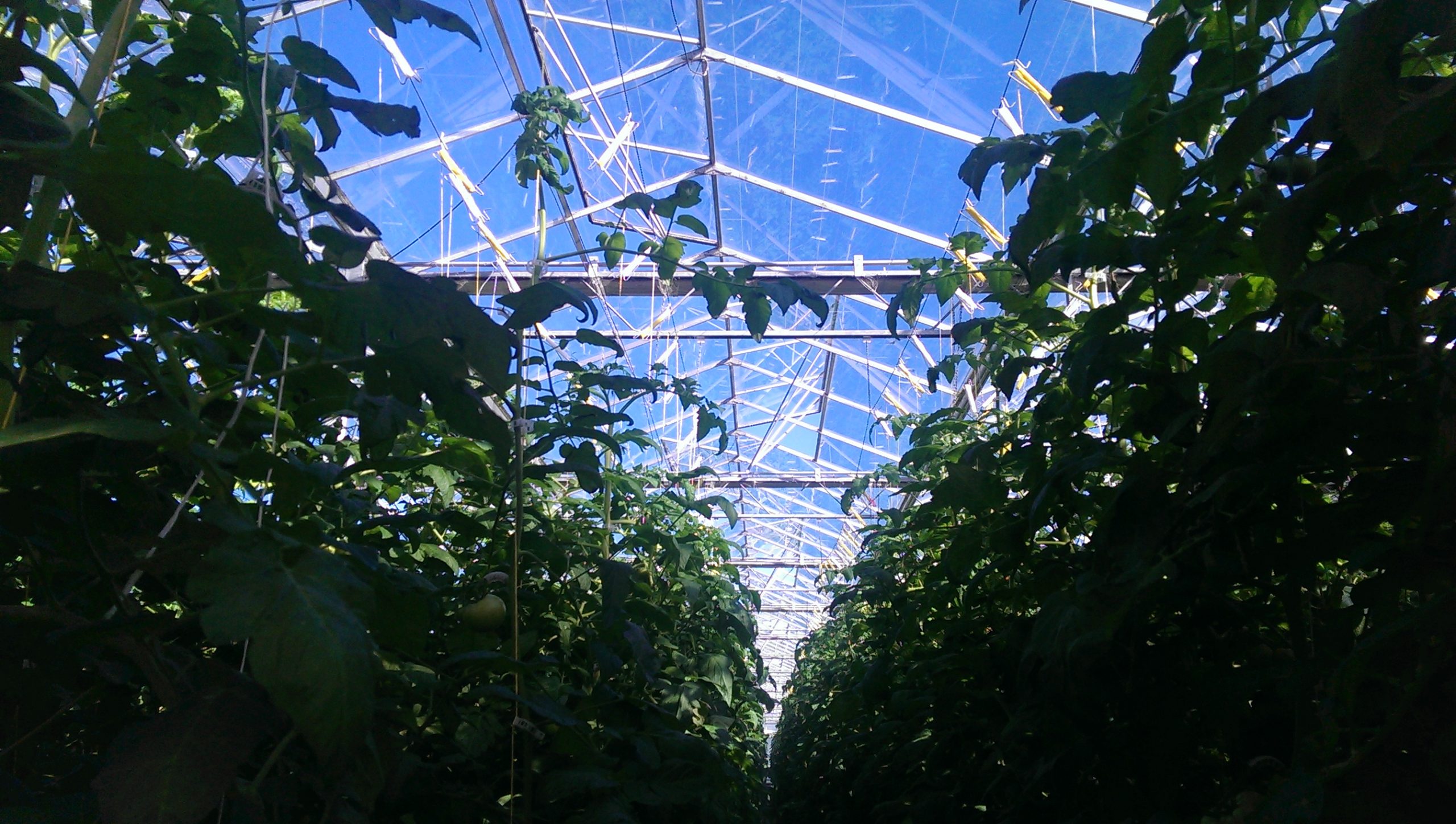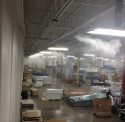Can water fog be used to optimize pest control in greenhouses?
“Compared to our production without the fogging installation, we had fifty percent less pest in our fogged crops.” -Keith Hammonds, VP Operations, OriginO (Origin Organics).
Canada: Fog System Brings Pest Pressure Down at B.C. Grower
On a total of 22 acres in Langley and Delta, B.C. grower Origin Organics produces soil grown greenhouse crops with the help of advanced climate controls.
Organic Requires New Thinking
OriginO started to grow certified organic greenhouse vegetables after many years of conventional cultivation. In 2005 they switched to organic farming, as they realized that there was a need for consistently high quality organic tomatoes and cucumbers in the North American market.
Nowadays they strictly grow organic produce, which is being marketed to the greater Vancouver area and the West Coast of the United States by Oppy.
“Coming from conventional cultivation, growing organic you had to go back and start from the basics”, explained Keith Hammonds, Vice President of Operations at OriginO.

“There are no guidelines, you learn as you go. We ran into many challenges that come with organic cultivation. For example, growing directly in a higher soil volume and using natural fertlizers; we had to rethink our entire irrigation and nutrition strategies. In conventional growing we were able to push the crop by manipulating irrigation EC and climate. In organic soil cultivation we feed the soil, not the plants. This allows us to steer the crop into balance and allows natural nutrient uptake.”
Unconventional Solution For Organic Greenhouse = Fog Humidity
But there were more challenges for OriginO to overcome. And they came up with one unconventional solution: a high pressure fog system. Such a system is mostly installed in hot and warmer southern climates for cooling.

Hammonds explained that humidification, not cooling, was the reason they installed it in their cucumber crop 3 years ago. It was so successful in their operations that they now use fog in their pepper crops as well.
“During days with too much light and high outside temperatures, we use the fog in order to release the stress of the plant.”
“During days with too much light and high outside temperatures, we use the fog in order to release the stress of the plant. Rather than being on the edge of growing all the time, we found that the fog could help us make things a bit easier on the plant. This gives us consistent fruit quality throughout the growing season.

Normally when a crop gets stressed from too much light or temperature, we close the thermal screens, which generate more shade. Now, when we start to see the smallest amounts of stress, we put the fog on and don’t have to take away all of the light. We see that this method puts less stress on the crop and keeps it more vital.”
Hammond also uses the fog to raise early spring humidity levels in the cucumber crop.
“B.C. is not known for [sunny or warm] extreme temperatures so fogging systems [for cooling] are not standard here, especially not in conventional crops. However, an organic crop is something different. You need to keep the crop as strong and vital as possible, as the resources to control pests and diseases are very limited.” Fog can be used to humidify the environment to create optimal growing conditions when cold and dry or to add cooling as needed when temperatures climb to minimize plant stress.
“There is nothing really out there other than biological controls for pests. We have found that these work more efficiently in the fogged crops. Compared to our production without the fogging installation, we had fifty percent less pest problems in our fogged crops. The plants were much stronger to cope with red spiders and aphids.”

Article Originally Published by HortiDaily and available here.
De Nijs, Boy. “Canada: Fog System Brings Pest Pressure Down at B.C. Grower.” HortiDaily, Fresh Plaza. March 23, 2016. Web.
Can we help design a fog system for your commercial organic greenhouse?
MicroCool For Greenhouse | MicroCool IBEX Pump | Design Considerations | Photos
phone. 1-800-322-4364 or 1-760-322-1111 | email. info at microcool.com







You cannot use comments here, because comments are disabled for this page/post. Please enable page/post comment in settings.